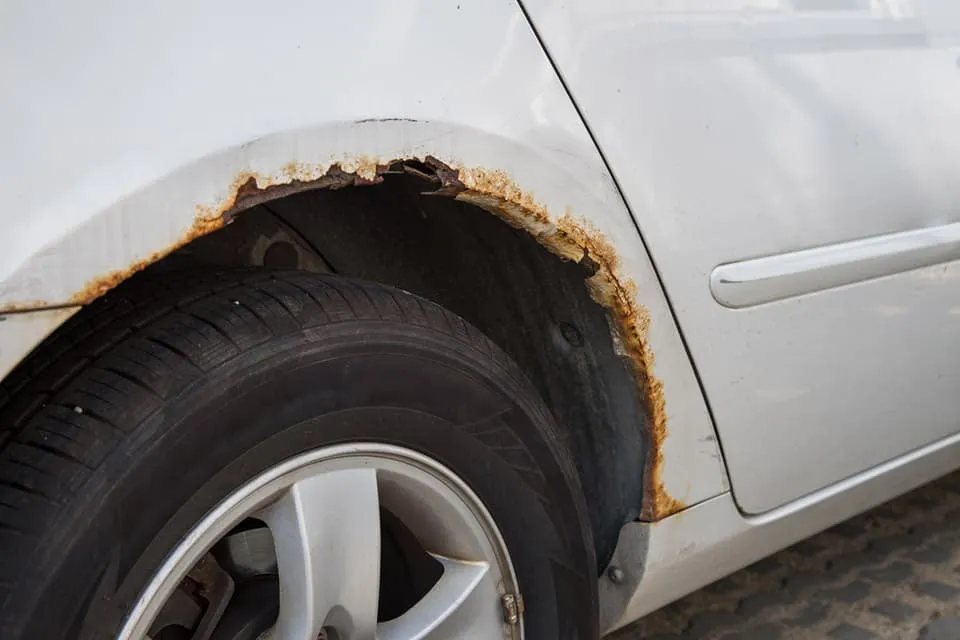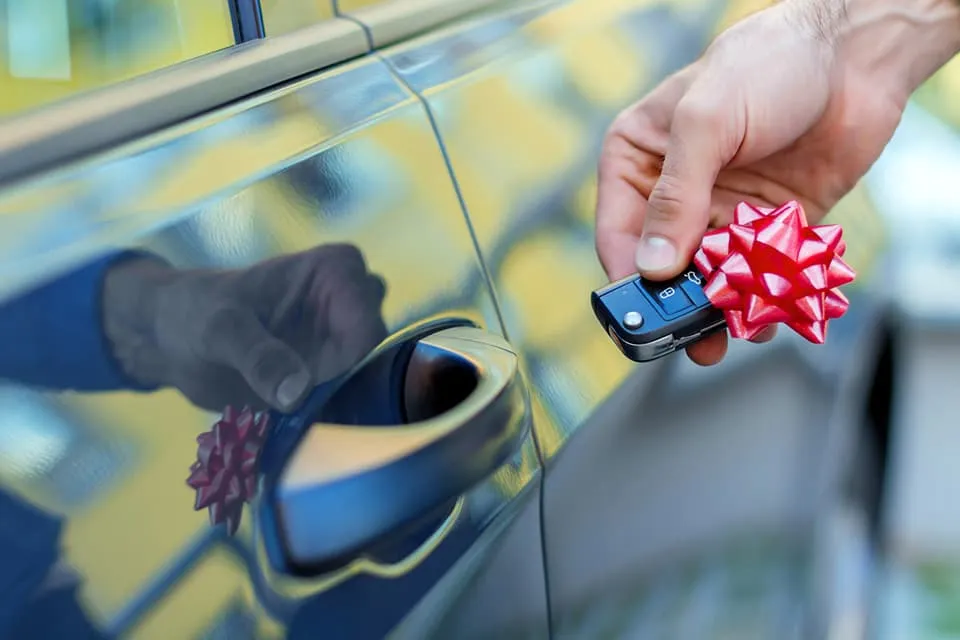- Should I Buy an Extended Warranty on a Used Car?
- What Is an Extended Car Warranty?
- Types of Vehicle Extended Warranties
- Should I buy an Extended Warranty On a Used Car?
- Should I Buy an Extended Warranty on a New Car?
- What is The Most Popular Extended Warranty, and What Does it Include?
- Extended Warranty Frequently Asked Questions
Should I Buy an Extended Warranty on a Used Car?

While a car warranty will usually be wrapped into the price of a new car, you'll need to pay extra to cover a used car. This extra coverage is known as an extended warranty, or a plan that will protect your vehicle past its original warranty's expiration. So should you buy an extended warranty on a used car? For the most part, it's a good idea to get an extended warranty. Vehicle issues may pop up shortly after purchase that can interfere with your budget, and an extended warranty can give you valuable peace of mind.
What Is an Extended Car Warranty?
An extended car warranty is optional additional coverage on your vehicle that covers the cost of specific types of repairs. These warranties will last for a set period of time or number of miles. What repairs are covered depends on your warranty terms, and a good plan can help reduce the financial burden of major repairs. Unlike insurance, extended warranties do not cover damage resulting from accidents. Some restrictions and requirements must be met for a warranty to cover a repair. Overall, an extended warranty can be very beneficial for new car owners, depending on what type of warranty you choose.
Types of Vehicle Extended Warranties

The types of extended warranties available to you are often the same as a regular car warranty. Some of these types include:
- Bumper-to-Bumper: The standard coverage, this type of warranty will often only cover any repairs necessitated by manufacturer error or due to regular wear-and-tear. A bumper-to-bumper warranty won't cover parts that need regular replacement, like your tires, and won't cover damage due to negligence.
- Corrosion Coverage: Corrosion warranties cover any rust damage your vehicle suffers over time. Some policies will focus on exterior rust or only cover damage in the case of significant corrosion. A total rust percentage measures this; if you don't meet the criteria set by your warranty issuer, they may not cover the damage.
- Powertrain Warranty: A powertrain warranty covers any part of your vehicle that helps it move. This coverage includes your transmission, drive axle, turbocharger, and engine. A good extended car warranty will cover all the parts of your engine, like the cylinder block, heads, valvetrain, fuel pump, injectors, gaskets, seals, and flywheel. A powertrain warranty can also cover the front and rear differentials and your car's driveshafts.
- EV Warranty: Often referred to as EV or Hybrid component warranties, an EV extended warranty will cover the internal mechanics of your electric vehicle. This coverage is separate from your standard warranty due to the construction difference between internal combustion engines and electric vehicles. An EV extended warranty will cover the battery, electric motor, and other EV-specific parts.
- Safety System Warranty: Sometimes referred to as a restraint systems warranty, this type of coverage will protect some of the safety features in your vehicle. These extended warranties usually deal with the standard features you find in most cars, like seat belts and airbags.
Should I buy an Extended Warranty On a Used Car?
Deciding whether to purchase an extended warranty for a used car depends on several factors. Firstly, consider the age and mileage of the vehicle. Older cars with higher mileage are more likely to experience mechanical issues, making an extended warranty potentially beneficial. Additionally, assess the reliability of the make and model of the car. If the vehicle has a history of frequent repairs or known issues, an extended warranty could provide peace of mind. Next, evaluate your budget and risk tolerance. While an extended warranty can offer financial protection against unexpected repairs, it also adds to the overall cost of the car. Finally, research the terms and coverage options offered by different warranty providers. Ensure that the warranty covers the specific components and repairs that are most likely to occur based on the vehicle's age and condition. Ultimately, weigh these factors carefully to determine if the added expense of an extended warranty is worth the potential benefits for your individual situation.
Should I Buy an Extended Warranty on a New Car?

Whether or not you should buy an extended warranty on a new car depends on how long your original coverage lasts and what type of vehicle you chose. If you have a more expensive luxury car, buying an extended warranty is often better. Repairs on luxury models can carry a higher cost, so if an extended warranty covers the larger components of your vehicle, that may save you a lot of money down the line.
Overall, the cost of an extended warranty should be weighed against your total vehicle budget. If the warranty cost plus your monthly payments are too high, it may be best to forgo getting a plan. You can see whether you'll have enough left over for an extended warranty by calculating your lease and loan payments ahead of time. You can do this with a lease and loan calculator, like the free one available from GoodCar.
What is The Most Popular Extended Warranty,
and What Does it Include?
The most commonly chosen type of extended warranty is bumper-to-bumper, as it covers most major systems within your vehicle. While bumper-to-bumper warranties vary from company to company, most plans will cover essential parts of your car like:
- Electrical Components
- Safety Equipment
- Steering System
- Braking System (Minus your brake pads)
- Fuel System
A bumper-to-bumper warranty won't usually cover frequently replaced parts and will often exclude coverage on:
- Tires
- Wheels
- Windshield Wipers
- Fluids
- Rust or Corrosion
- Interior Upholstery
- Exterior Cosmetic Damage
Whether your car needs a bumper-to-bumper warranty depends on how soon it may need repairs. Getting a vehicle history report is an excellent way to find any hidden damage within your vehicle. These reports can show you information about a car's history of accidents and may help you find out whether someone fully repaired the vehicle in the past.
Extended Warranty Frequently Asked Questions
How Long Does an Extended Warranty Last?
How long your extended warranty lasts depends on what plan you choose and what part of the vehicle you are covering. Extended warranties on used cars can last as little as one year or as long as eight years. For warranties based on mileage, you can get an extended warranty that lasts up to 300,000 miles through some plans.
Why Should You Never Buy the Extended Warranty?
Firstly, extended warranties can be expensive, adding to the overall cost of the vehicle. Additionally, they may have limitations and exclusions that could make it difficult to use the warranty when needed. Some argue that the likelihood of needing costly repairs during the warranty period may be low, making the warranty unnecessary. Ultimately, whether or not to buy an extended warranty depends on individual circumstances, risk tolerance, and preferences for financial protection.
What Is Covered In an Extended Warranty?
What specific areas of your vehicle are covered by a warranty will change depending on your plan. An extended car warranty may be comprehensive or cover one system within your vehicle. For example, a powertrain warranty will cover any parts related to powering your vehicle, like the engine.
How Many Miles Does an Extended Warranty Cover?
An extended warranty that expires based on mileage instead of time can cover a variety of distances. Some plans may only cover your car for 100,000 miles, while others can go as far as 300,000. What distance a plan will cover depends on the car's parts under warranty and the plan's cost.
What Does an Extended Warranty Not Cover?
Extended warranties usually won't cover regular maintenance or any parts that need to be changed frequently. Your plan likely won't cover any oil changes, inspections, timing belt replacement, brake pad replacements, or windshield wiper replacements. Make sure to check the coverage of your extended warranty closely before agreeing to any terms. If the plan doesn't cover the parts of your vehicle, you want to protect, shop around and find one that does.
- Should I Buy an Extended Warranty on a Used Car?
- What Is an Extended Car Warranty?
- Types of Vehicle Extended Warranties
- Should I buy an Extended Warranty On a Used Car?
- Should I Buy an Extended Warranty on a New Car?
- What is The Most Popular Extended Warranty, and What Does it Include?
- Extended Warranty Frequently Asked Questions
FREE Vehicle Search
- Accidents
- Problem Checks
- Title Records
- Recalls
- Values
- Specs
-
InfoPay, Inc. (dba GoodCar) is an Approved NMVTIS Data Provider
-
-































